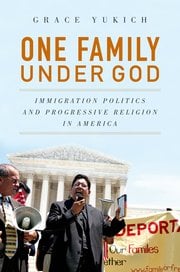My research team and I are waist-deep in interviews of twenty-somethings for my next book project. Among the 90-some interviews we’ve conducted are about 15 (so far) with evangelicals. Between what they’re telling us and my own listening and reading, I’m detecting a subtle—yet significant—shift in how evangelicals talk about ideal mating scenarios. When I was a younger man, Christians of all stripes were counseled pretty straightforwardly to avoid marrying an unbeliever—that is, someone who didn’t share the basics of Christian doctrine. The logic, of course, is that the unbelieving spouse would foster the same in you and your (future) children, and that that would be a bad outcome. The advice arose, I presume, as an extension of 2 Corinthians 6:14, which itself need not be interpreted as applying primarily to marriage, but it often has been.
But that’s not what I’m hearing today from evangelical quarters. At some point this advice seems to have morphed into a much higher bar for an optimal mate, which seems (to me, at least) a problem, since fewer Americans are marrying today than ever before. When demand (for marriage) drops, I’m not sure restricting supply is the smart thing to do.
The narrative we heard from several respondents—and I myself heard it back when I briefly dabbled with the Baptists before swimming the Tiber—goes something like this: fix your eyes on Jesus, live the life of discipleship, and then as you’re doing that look around once in awhile and see who’s running that race along with you and perhaps they might make an ideal spouse. (No practical advice about it, just conceptual).
My job as an interpreter of religion and other aspects of social life is not so much to personally contest any particular bit of advice that is circulating out there, but to discern its sources and its likelihood of success. I’m less confident that I understand the sources of this advice—and I would like help in figuring that out—but I’m pretty darn sure it’s a recipe for massive failure to launch.
Why? Well, there’s long been a man shortage in American congregations. (Indeed, not just in America, and not just within Christianity.) But there’s an even more profound “devout” man shortage in American congregations. At least one out of three evangelical women cannot—meaning it’s empirically impossible to—marry a man who’s their spiritual equal. (That figure came from my own data analysis of the National Longitudinal Study of Adolescent Health, which revealed only two serious, churchgoing evangelical men for every three comparable women.) They can pray till their blue in the face, and it won’t happen apart from some “man revival,” one which grows the faithful XYs but not the XXs.
So basically the advice to women now translates to: “Find that rare man who is your spiritual equal or leader—not to mention kind, virtuous, employed, and, if possible, handsome—and then figure out how to make him want to marry you.” It can be a tall order.
In fact, it’s impossible for a significant minority, at least by the numbers. So evangelicals feel sorry for the one-third of devout women, and try to say nice things about the benefits of singleness (which do exist), but nothing can force them to move their boundary stones for marriage. Except that they have moved. Marriage is slowly becoming something that only an elite will attain on the timetable they prefer.
So, readers, help me understand how and why the bar for a prospective spouse got raised into the spiritual stratosphere. Isn’t the old, simple “unequally yoked” standard good enough?











